TRADE AND INVESTMENT OPPORTUNITIES
The Republic of Zimbabwe has tremendous investment and trading opportunities and the country welcomes foreign direct investments in all sectors of the economy. The Government of the Republic of Zimbabwe recognizes trade and investments as engines of the country’s sustainable economic growth and prosperity. The trade and investments are also sources of private external finance as well as means through which the country can secure modern production technology, skills, innovation as well as management techniques and expertise required to manage and grow a modern economy. Moreover, trade and investments contributes towards the creation of employment and enhancing Zimbabwe’s access to international market networks. The major exports of Zimbabwe include diamonds, gold, platinum, chrome ore, nickel ore, ferro-alloys, tobacco, cotton lint, fruits, sugar, tea, coffee and horticultural products. The principal imports include fuels and petroleum products, pharmaceuticals, machinery, vehicles, chemicals and fertilizers.
Why Invest in Zimbabwe?
(1). Zimbabwe is OPEN FOR BUSINESS. Since the inception of the Second Republic in November 2017, Zimbabwe has been repositioning and availing itself for those interested in doing business in the country. The Government of Zimbabwe has taken and continues to take various measures or reforms to improve the Ease of Doing Business in the country. Several measures are also being implemented to create a conducive environment for business and investments to flourish in Zimbabwe. With a view to remove any red tape and bottlenecks impeding business and investments in Zimbabwe, the Government established the Zimbabwe Investment and Development Agency (ZIDA) which is tasked with promoting investment coordination, assisting investors and facilitating entry and implementation of investment projects. Under ZIDA, all relevant Government Departments dealing with investments are now housed under one roof. Several foreign investors have responded to the mantra Zimbabwe is Open for Business by visiting the country and scouted for business and investment opportunities.
(2). Zimbabwe is a stable and secure country and is endowed with abundant natural resources across all economic sectors. For instance, Zimbabwe has a rich variety of commercially exploitable mineral deposits. The country’s soils and climate are very conducive to produce a very wide range of agricultural commodities.
(3). Geographically, Zimbabwe is centrally and strategically located in the Southern African sub-region. It is a gateway and forms part of the North – South Corridor linking South Africa with countries to the north of Zimbabwe like Zambia, the DRC, Malawi into the African hinterland. Because of its geographical location, Zimbabwe is well positioned to serve regional markets for the 16 SADC countries.
(4). Zimbabwe is naturally a regional logistics hub as it is well supported by a sound infrastructure of railway lines, roads, power grids and telecommunication.
(5). The Zimbabwean human capital is highly skilled and very hard working. The country has the highest literacy rate in Africa.
(6). Zimbabwe is a signatory of several bi-lateral and international agreements (MIGA, OPIC, ICSID and UNCITRAL) which protects the investments of the companies in Zimbabwe.
(7). Zimbabwe has well developed infrastructure, easy access to regional and world markets through its membership in AU, COMESA, SADC, COPAC and CISSA. Zimbabwe offers free movement of investment capital and attractive investment incentives. Zimbabwe also allows for 100% Foreign Direct Investment in almost all sectors expect in diamond and platinum mining.
Energy Sector
Zimbabwe is open to investments in the whole spectrum of the energy sector. The country has the necessary supportive legal and regulatory framework in place to support the investments in the sector. The energy sector has investment opportunities in hydropower generation and coal bed methane gas. The sector is open for private player participation with the Government only playing an oversight role as the policy maker. Zimbabwe has hydropower potential of over 3000MW available mainly on the Zambezi River. It also has an estimated 40 trillion cubic feet of CBM reserves, which can be exploited and utilized to generate power as well as industrial energy and petroleum industry. Zimbabwe has approximately 26 billion tones of coal reserves for power generation. In addition, there is an abundance of solar energy with an average solar irradiation of 20MJ per square meter per day. Similarly, Zimbabwe has areas with huge potential for wind power. Currently, Zimbabwe has energy shortfalls while a huge demand for electricity is expected due to economic recovery and growth.
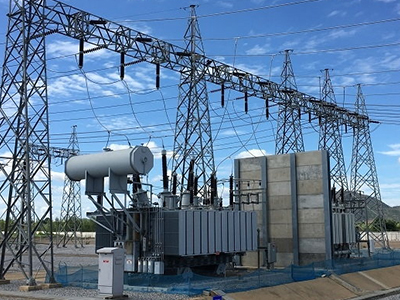
Why Invest in Zimbabwe Energy Sector?
There is high demand for electricity in Zimbabwe owing to the projected economic growth that the country is expected to achieve as it approaches 2030. The demand for electricity also emanates from the inadequate electricity supplies that Zimbabwe has been experiencing over the recent couple of years. There is also high primary energy diversity in Zimbabwe in the form of hydro, coal, gas, solar and wind. Moreover, given its central geographical location in Southern Africa, Zimbabwe’s power system is strategic to the Southern African Power Pool. Zimbabwe’s central geographical location in Southern Africa makes the country a convenient place for destination of petroleum products in the region.
Manufacturing Sector
There are investment opportunities in Zimbabwe’s manufacturing sector particularly in value addition of primary products from the agriculture and mining sectors. There are also opportunities for the manufacture of industrial chemicals, fertilizers, insecticides, detergents, soaps, plastic products, paints, polishes, glues and several other chemicals for both the local, regional and global markets. Opportunities also exist in textiles, leather, timber, furniture, metals and food processing.
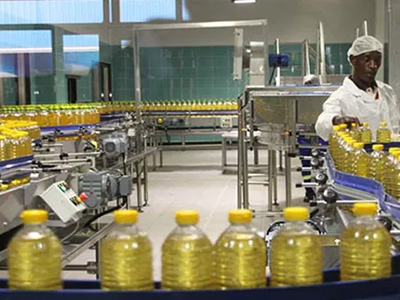
ICT
Zimbabwe’s economic development hinges on maximum exploitation of information communication and technologies in all facets of the economy. The country therefore welcomes investments in the ICT sector. There are various investment opportunities in Zimbabwe in the ICT sector. These include the provision of media services; the supply of digitalization equipment; E-Business; software development; business process outsourcing; data storage area network; hardware assembly; call centers; film industry and graphics and multimedia development.

Infrastructure Development
Zimbabwe’s economic development and growth still require more development and expansion of infrastructure. Thus, the country still needs more power generation infrastructure, improved water supply infrastructure, construction of modern highways, resurfacing of existing highways and so forth. The private sector is being welcomed to participate in the development and provision of modern infrastructure on PPP basis.

Tourism, Hospitality and Catering Sector
The tourism sector has several investments opportunities. Key among them are investments in the accommodation sector especially the construction of hotels and lodges at tourist resorts across the country. Zimbabwe is in need of more hotel and lodge rooms to cater for the increasing number of tourist arrivals every year. Other investments include the construction of world-class conference facilities, golf courses, theme parks and water sports. Investment opportunities also exist in catering, safari tours, gaming and animal documentaries production.
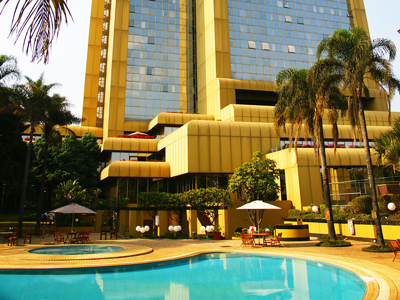
Agriculture Sector
Agriculture is the engine of the Zimbabwean economy and is the largest economic sector in the country. Zimbabwe, which for decades has held the position of the ”Breadbasket of Southern Africa”, has one of the best farming climates and fertile soils in the world thereby making agriculture a highly viable and profitable investment portfolio. This country has one of the best developed agribusiness sector in Africa which offers opportunities in value addition, processing, canning and extraction of meat, fruits, vegetables, oil seeds, nuts and milk, beverages, leather production, stock feeds production and sale, horticulture, floriculture, sugar refining, confectionery. The agribusiness sector offers opportunities for the exportation of agricultural products such tobacco, cotton, horticulture, fresh vegetables, flowers, sugar and cotton.
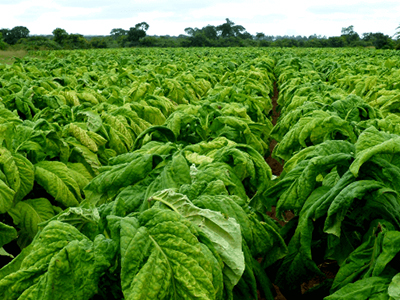
TOBACCO
There are also several business and investment opportunities in Zimbabwe’s agribusiness sector. These include:
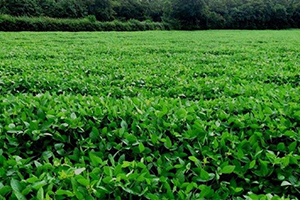
SOYA BEANS
- Crop Production
There are opportunities for the production of maize, soybeans, sugar beans, and cow-peas as well as production of commercial crops such as tobacco, cotton, wheat, sugar cane, coffee and tea.
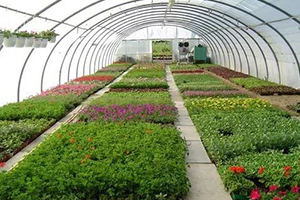
- Horticulture
Zimbabwe offers great investment opportunities in the horticulture sector. The sector offers opportunities for exports of fresh and frozen products such as flowers and fresh vegetable to various international markets especially those in the northern hemisphere.

- Livestock Production
Zimbabwe has a commercial ranging sector which provides excellent investment opportunities for livestock production to provide organic meat, canning of beef for domestic market and exports. The country has a long and rich history of commercial cattle ranching and investors are encouraged to enter into it. Investors can also invest in crocodile and ostrich production for leather products.
Sale of Agricultural Equipment
There are opportunities for the manufacture, supply and sale of agricultural equipment such as irrigation equipment, tractors, combine harvesters. Following the land reform programme, Zimbabwean farmers are in great need of modern farming equipment in order to increase agricultural production and productivity. Opportunities exist in supply of equipment for processing agricultural commodities into manufactured goods through value addition. There are also opportunities in the agrochemical subsector through the manufacture of fertilizers, insecticides and pesticides.

Mining Sector
Zimbabwe is a mineral rich country with very great potential for further discoveries. The country has a huge and highly diversified mineral base dominated by two prominent geographical features namely the famous Great Dyke and the ancient Greenstone Belts known as Gold Belts.
The mining sector in Zimbabwe is highly diversified with over 40 different types of precious minerals. However, only ten of them are currently mined. These are gold, platinum, coal, nickel, chrome, diamonds, copper, silver, tin and black granite. Rare minerals such as lithium and tantalum also exist in commercially viable quantities. Beside direct investment in mining, there are significant opportunities to provide heavy underground mining machinery and other supplies needed by the mines as well as transportation infrastructure and materials. Zimbabwe also has a well-established mining tradition that is regulated by the Ministry of Mines and Mining Developments and supported by an active Chamber of Mines. The mining sector in Zimbabwe is well served by road, rail, telecommunication and energy infrastructure. The Government of Zimbabwe is always pro-mining and is doing everything to improve the investment climate in the mining sector for those interested in both greenfield and brownfield mining projects
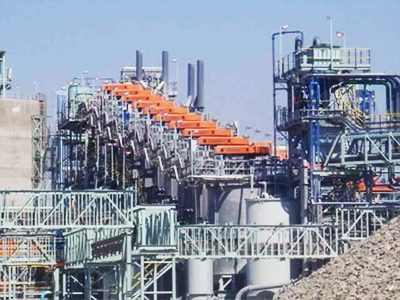
Diamonds
Zimbabwe has the potential to supply nearly 25% of the global diamond demand in terms of value within a few years. The Marange concession, located in the east of Zimbabwe, is home to one of the world’s richest diamond deposits. Zimbabwe continues to make new huge discoveries of rich diamond deposits, i.e. in Chivi and Mwenezi Districts where huge deposits of kimberlite diamonds were discovered recently. Zimbabwe’s diamond deposits are scattered over a 10 000 square kilometer area stretching from Manicaland to Masvingo Province. There are also opportunities for cutting and polishing diamonds. The Government of Zimbabwe opened doors for investors to invest in the diamond sector.

Coal
Zimbabwe had an estimated 28 billion tons of coal reserves. The country also has 765 billion cubic metres of measured Coal-Bed Methane (CBM) gas in the Hwange, Lupane and Gwayi areas. This exceeds the total measured resources in the rest of the Southern African Development Community put together. The CBM can be used for the generation of electricity.

Gold
Zimbabwe has the second largest gold reserves per square kilometer in the whole world with 13 million tonnes of proven reserves of which only 580 tonnes have been exploited since 1980. The country remains under explored to discover deposits away from these ancient workings. More than 90% of gold deposits in Zimbabwe are associated with greenstone belts which are some of the richest in the world.

Platinum Group of Metals (PGM)
Zimbabwe hosts the second largest Platinum Group of Metals (PGMs) resource in the world on the Great Dyke with an estimated amount of 2,8 billion tonnes. The Great Dyke, stretching for 550km, has an estimated 2,8 billion tonnes of Platinum Group of Metal (PGM.) i.e. platinum, rhodium, ruthemum, iridium, osmium.
Chrome
Zimbabwe has the second largest high-grade chromium ores in the world after South Africa with reserves of approximately 900 million tonnes. It has the potential to supply between 10% and 20% of the world’s ferrochrome demand. Chrome is one of Zimbabwe’s main exports after gold and platinum group metals.

Iron Ore
Zimbabwe has huge iron ore deposits associated with banded ironstone formations in greenstone belts. Iron ore deposits are estimated to be over 30 billion tonnes of reserves.

Lithium
Zimbabwe has the world’s fifth largest reserves of lithium in the world and its deposits are second to none in Africa. Zimbabwe has sufficient lithium to meet 20% of the world’s total demand for lithium ore. Lithium is mainly used primarily in the automotive industry (battery manufacturing) as well as production of glass and ceramics. While Zimbabwe is within the top ten lithium producing countries in the world, it currently produces only a fraction of the worldwide total.
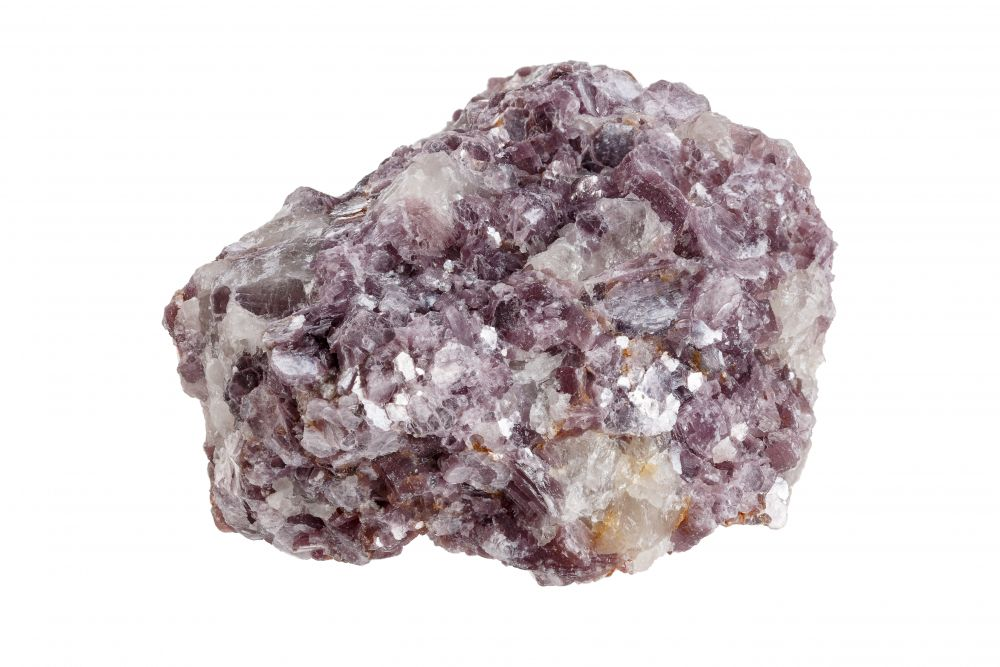
Zimbabwe has a lot of interesting economic opportunities. Those interested may come to the Embassy and will be gladly assisted, or travel to Zimbabwe and establish the right contacts for business investments through the Zimbabwe Investment Development Agency ZIDA.

